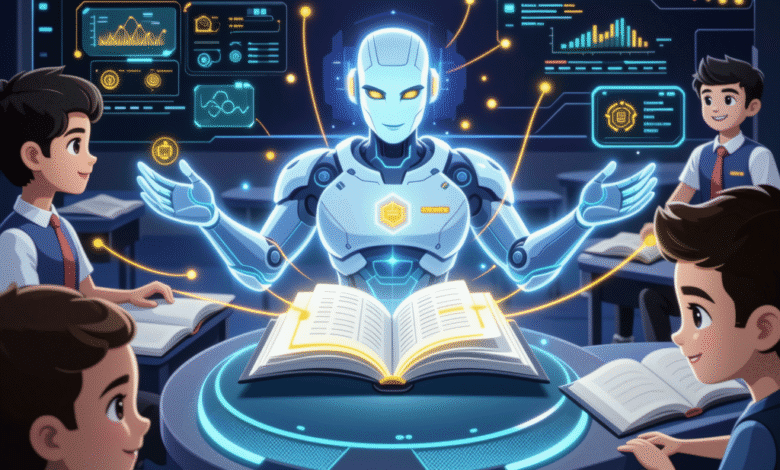Claude AI Launches New Features to Rival OpenAI and Google

▼ Summary
– Anthropic introduces new “learning modes” for Claude AI, shifting from direct answers to guided teaching to address concerns about AI undermining genuine learning.
– The features, available for Claude.ai and Claude Code, emphasize guided discovery and skill development, targeting both general users and developers.
– Major tech firms like OpenAI and Google are also launching similar AI education tools, intensifying competition in the $340 billion edtech market.
– Claude Code’s learning modes help junior developers understand and debug code, balancing productivity with long-term skill growth.
– Educational institutions are adopting AI tools but face challenges in ensuring academic integrity and deep learning amid easy access to AI-generated answers.
Anthropic has unveiled groundbreaking learning features for its Claude AI platform, marking a strategic push into the education sector where artificial intelligence tools are increasingly in demand. These new capabilities transform Claude from a simple question-answering bot into an interactive teaching assistant, addressing growing concerns about AI’s role in genuine skill development.
The update introduces Socratic-style learning modes across both Claude.ai and Claude Code, Anthropic’s programming-focused assistant. Unlike traditional AI tools that deliver instant answers, these features encourage users to engage in deeper problem-solving by prompting them with guiding questions and structured challenges. For developers, the system offers two specialized modes, one that explains coding decisions in detail and another that pauses mid-task, requiring users to complete designated sections themselves.
This shift comes as major tech players compete fiercely for dominance in AI-powered education. OpenAI recently introduced a Study Mode for ChatGPT, while Google launched Guided Learning for its Gemini assistant alongside a $1 billion investment in AI education initiatives. The timing aligns with the back-to-school season, a critical period for adoption among students and institutions.
The global edtech market, valued at $340 billion, presents a lucrative opportunity for AI companies. Beyond immediate revenue, influencing how students interact with AI could establish long-term competitive advantages. Anthropic emphasizes that its approach prioritizes human-AI collaboration over full automation, a philosophy that contrasts with the broader industry trend toward autonomous agents.
Educators remain divided on AI’s role in learning. While tools like Claude’s learning modes encourage active engagement, critics argue that students can still bypass these features for quick answers. Universities partnering with Anthropic, including Northeastern and the London School of Economics, are testing ways to integrate AI responsibly without compromising academic integrity.
Under the hood, Anthropic’s learning modes rely on modified system prompts rather than fine-tuned models, allowing rapid adjustments based on user feedback. Future enhancements may include visual explanations for complex topics, progress tracking, and personalized learning paths, features that could further differentiate Claude in a crowded market.
As AI becomes ubiquitous in classrooms, the real measure of success won’t be adoption rates but whether these tools foster critical thinking and intellectual curiosity, qualities no algorithm can replicate. The challenge for Anthropic and its rivals is ensuring AI enhances education rather than replacing the cognitive effort essential for true mastery.
(Source: VentureBeat)





